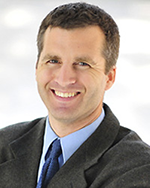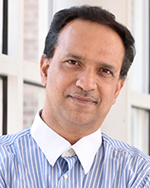|
University of Maryland (UMD) MATRIX Lab affiliate faculty members are advancing research in domains ranging from under the sea to space.
 Dr. Derek Paley’s (AE/ISR) work covers air, ground, sea, and space domains. He and his group are particularly interested in incorporating advanced sensory perception and automatic control capabilities in robotic platforms. The work can be used to help first responders by autonomously triaging mass casualty incidents using robots. Other applications include supporting law enforcement by improving campus safety using 5G-enabled drones. Dr. Derek Paley’s (AE/ISR) work covers air, ground, sea, and space domains. He and his group are particularly interested in incorporating advanced sensory perception and automatic control capabilities in robotic platforms. The work can be used to help first responders by autonomously triaging mass casualty incidents using robots. Other applications include supporting law enforcement by improving campus safety using 5G-enabled drones.
The MATRIX Lab contributes to Dr. Paley’s work on creating more efficient autonomous underwater vehicles. The research focuses on improving hydrodynamic efficiency by studying the movement of robotic fish swimming in close proximity to one another. His former postdoctoral fellow and current MATRIX Lab Assistant Research Engineer Dr. Wei-Kuo Yen is leading the project and gathering data using the lab’s water tunnel. One of Dr. Paley’s PhD students in College Park is also contributing to the work. Energy-saving movement allows systems to operate longer without needing to recharge. This could help the Office of Naval Research cut down on costs and increase the endurance of autonomous underwater vehicles.
All of this research has brought sponsorships, awards, and attention to the university. The funding that Dr. Paley has brought in has helped train hundreds of students and postdocs, giving them hands-on experience with real-world research projects.
“I am a strong believer in undergraduate research experiences,” Dr. Paley said. “Students often cite their research and team experiences as the most formative aspects of their program of study. We’ve also heard from employers that these experiences give students the intangible skills that they don’t gain from classes. In research, students learn that the professor doesn’t always know the answer!”
Dr. Paley has also helped strengthen the university’s relationships with organizations in Southern Maryland, including the Naval Air Warfare Center Aircraft Division (NAWCAD) and the Naval Air Systems Command (NAVAIR).
“The MATRIX Lab water tunnel is a unique resource facility that we are utilizing for our research,” Dr. Paley said. “Our work in maritime autonomy has the potential to increase engagement with NAWCAD and NAVAIR.”
 Dr. Dinesh Manocha’s (CS/UMIACS/ECE/ISR/AMSC) work covers ground and air – specifically, autonomous robots and drones working in unison. In his research, drones get an aerial view of a terrain from cameras and use that perspective to guide ground robots traversing the terrain surface below. His work with ArtIAMAS on navigating dense vegetation in order to deliver payloads in areas with grass, shrubs and trees, is bringing national attention to UMD. He has many options for conducting ground research but utilizes the Southern Maryland facilities for his aerial testing and data gathering. Fewer flight restriction zones make it easier to fly outside, and the Open Air-Land Lab allows for indoor flights in a controlled environment. Dr. Manocha said collecting aerial data can be a challenge – and the MATRIX Lab is helping him overcome that hurdle. Dr. Dinesh Manocha’s (CS/UMIACS/ECE/ISR/AMSC) work covers ground and air – specifically, autonomous robots and drones working in unison. In his research, drones get an aerial view of a terrain from cameras and use that perspective to guide ground robots traversing the terrain surface below. His work with ArtIAMAS on navigating dense vegetation in order to deliver payloads in areas with grass, shrubs and trees, is bringing national attention to UMD. He has many options for conducting ground research but utilizes the Southern Maryland facilities for his aerial testing and data gathering. Fewer flight restriction zones make it easier to fly outside, and the Open Air-Land Lab allows for indoor flights in a controlled environment. Dr. Manocha said collecting aerial data can be a challenge – and the MATRIX Lab is helping him overcome that hurdle.
“The MATRIX’s Open Air-Land Lab is very unique. I’ve seen very few spaces like it,” Dr. Manocha said. “You can change the communication channels, use a GPS-denied environment... All these features make the MATRIX Lab a very exceptional facility for conducting some novel research in aerial autonomy, both indoor and outdoor. We are very fortunate to have access to it.”
Dr. Manocha has future plans for multi-Uncrewed Aerial Vehicle (UAV) system research at the MATRIX Lab and says he wouldn’t even be considering these challenging projects in Physical AI if the lab facility was not available. Multi-UAV projects pose a unique challenge – how all the devices involved will communicate with each other. In many cases, communication is centralized into one control station. Dr. Manocha’s team would like to take a new approach, minimizing central communication and creating a peer-to-peer network of communication.
In his role with the University, Dr. Manocha teaches the pillars of autonomous systems – data capture (sensing with cameras or remote sensing with a method like LiDAR), perception (making sense or scene understanding of what’s been captured with machine learning), planning, and control. He takes a lot of pride in his “amazing” students and says they are the main reason he enjoys working at UMD.
“The students are so good! We are very fortunate that AI and autonomy is drawing in some of the best young talent in terms of undergraduate and graduate students,” Dr. Manocha said. “I always say, if you see any good research coming out of my group, the majority of the credit goes to the students. That’s what makes our university so special – we get these very hardworking, brilliant learners.”
Both Dr. Paley and Dr. Manocha are happy to involve students in their work and teach them skills that make them more employable.
View our full list of affiliate faculty here.
Related Articles:
Sensor Advancement Breaks Barriers in Brain-Behavior Research
University of Maryland Represented at International Forum
UMD Student Bridging Research Innovation and Education Advocacy
MATRIX-Affiliated Faculty Solving Challenges with Solutions from Nature
Clark School Seed Grant Awards Announced
Ghodssi Awarded Distinguished University Professor Title
MATRIX-Affiliated Faculty Solving Tomorrow's Challenges Today
MATRIX Lab Workshop Focuses on Fielding Autonomous Systems
OmniSpeech Launches Real-Time Voice Deepfake Detection
MATRIX Faculty to Present at International Conference
June 25, 2025
|

